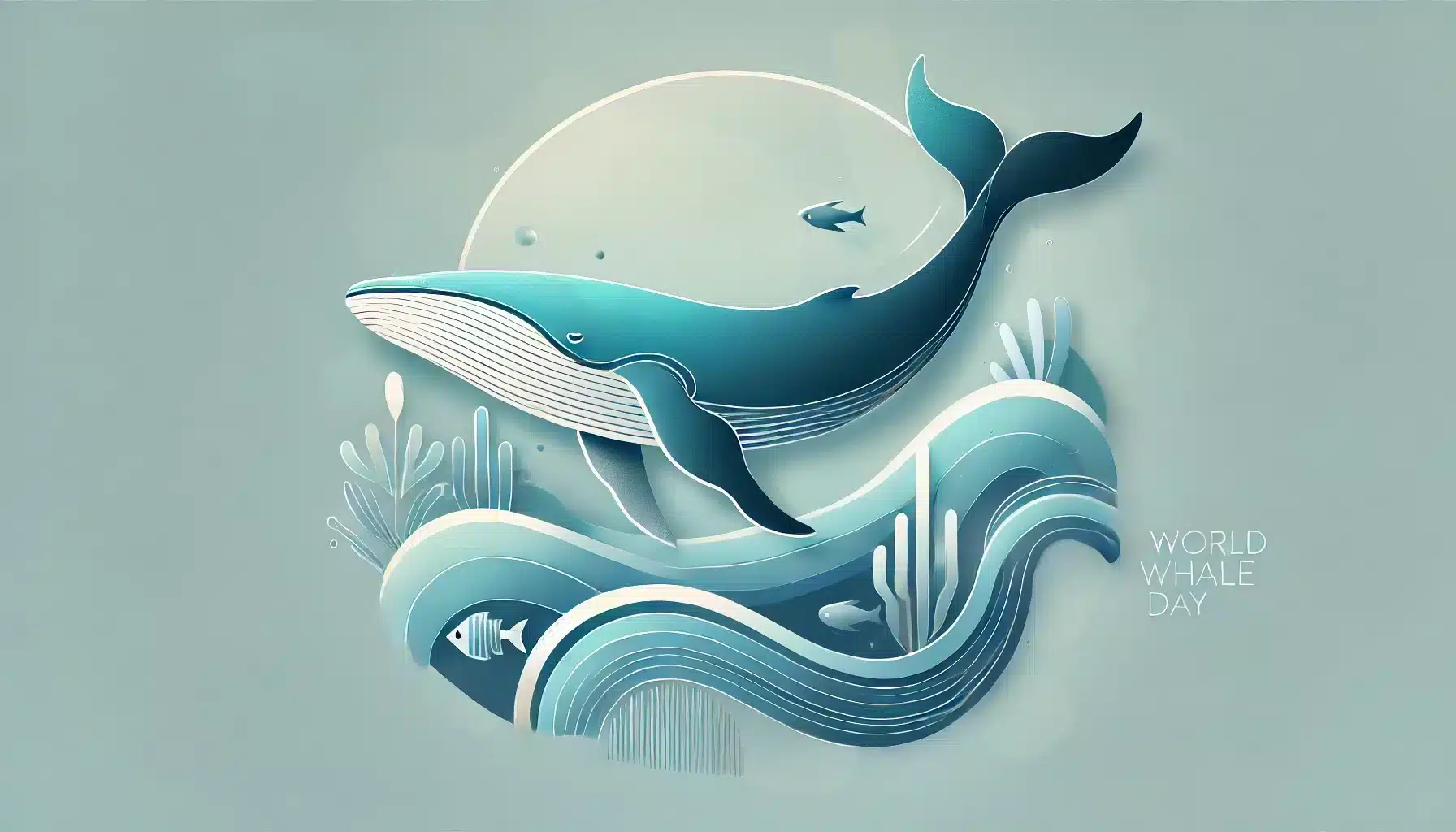What is World Whale Day?
World Whale Day, observed annually on the third Sunday of February, is a global event dedicated to celebrating and raising awareness about whales and their importance in marine ecosystems. It emphasizes the need for conservation efforts to protect these majestic creatures and their habitats from the numerous threats they face, including pollution, climate change, and hunting.
History and Origin
World Whale Day was established in 1980 in Maui, Hawaii, by Greg Kauffman, founder of the Pacific Whale Foundation. Initially created to honor humpback whales that migrate to Hawaii’s waters, the day has since grown into a worldwide event promoting whale conservation.
The observance serves as a platform to educate the public about the ecological significance of whales and the urgent need to protect them. Over the years, it has brought together environmentalists, educators, and communities to advocate for sustainable practices that support marine life.
Who Celebrates World Whale Day?
- Environmental Organizations: Actively participate in events and campaigns aimed at protecting whales and their habitats.
- Educators and Students: Use the day to learn about marine biology and the role whales play in maintaining ocean ecosystems.
- General Public: Engage in activities like whale watching, beach clean-ups, and educational workshops to support conservation efforts.
- Governments and Policymakers: Advocate for policies and regulations to reduce threats to whale populations.
- Marine Tourism Operators: Organize responsible whale watching tours and raise awareness about the importance of ethical interactions with marine life.
Themes and Slogans
World Whale Day focuses on themes such as marine conservation, the ecological importance of whales, and human impact on marine life. It encourages collective action to protect these creatures and their habitats.
A popular slogan for the day is:
“Protect Our Giants of the Sea.”
This reflects the mission to safeguard whales and their critical role in maintaining healthy oceans.
Colors, Symbols, and Patterns
Colors
- Blue: Represents the ocean and the natural habitat of whales.
- Gray: Symbolizes the various species of whales and their unique characteristics.
- White: Denotes purity and the importance of preserving marine life.
Symbols
- Whale Tail: A universal symbol of whales, representing their grace and importance in marine ecosystems.
- Wave Patterns: Highlight the ocean environment where whales thrive.
- Heart: Emphasizes love and appreciation for these majestic creatures.
Patterns
- Ocean Waves: Represent the movement and environment of whales.
- Whale Silhouettes: Depict the grandeur and diversity of whale species.
- Bubble Motifs: Reflect the underwater world and the natural behavior of whales.
How to Celebrate World Whale Day
- Participate in Educational Events: Attend workshops, lectures, or virtual seminars focused on marine conservation and the role of whales in ecosystems.
- Support Conservation Organizations: Donate to or volunteer with groups dedicated to protecting whales and their habitats.
- Engage in Responsible Whale Watching: Join eco-friendly tours that respect whales’ natural behaviors and habitats.
- Raise Awareness: Share information about World Whale Day on social media using hashtags like #WorldWhaleDay and #SaveTheWhales.
- Advocate for Policy Changes: Support legislation that reduces threats to whales, such as bans on commercial whaling and measures to combat ocean pollution.
Most Used Hashtags
- #WorldWhaleDay
- #SaveTheWhales
- #WhaleConservation
- #ProtectOurOceans
- #MarineLifeMatters
Why is World Whale Day Important?
World Whale Day highlights the vital role whales play in maintaining healthy marine ecosystems. Whales regulate food chains, support nutrient cycling, and contribute to the overall health of the oceans. Despite their importance, they face threats such as climate change, ocean pollution, and historical overhunting.
By raising awareness and promoting conservation efforts, this day inspires global action to protect whales and ensure the sustainability of marine ecosystems. World Whale Day reminds us that the health of the oceans and the survival of whales are deeply interconnected, making their preservation essential for future generations.
Features
Contact Info
Third Sunday of February: Whale Day
Articles
- Understanding the Psychological Reasons We Value Astrology
- Aaron Burr: Controversial Vice President and Founding Father of America
- Afrika Korps: Germany's Armoured Unit in World War II
- Understanding Anno Domini and the Gregorian Calendar System
- Amatonormativity
Days
- February 17: Reconciliation Day (Comoros)
- February 17: Cat Day (Poland and Italy)
- February 17: Café au Lait Day (United States)
- February 17: Cabbage Day (United States)
- February 17: Global Tourism Resilience Day
- February 17: PTA Founders’ Day
Why do you keep falling for the same type?
Read the article Lovemaps: the hidden blueprint of our love.
Did you not find what you were looking for? Let me help you find more.

